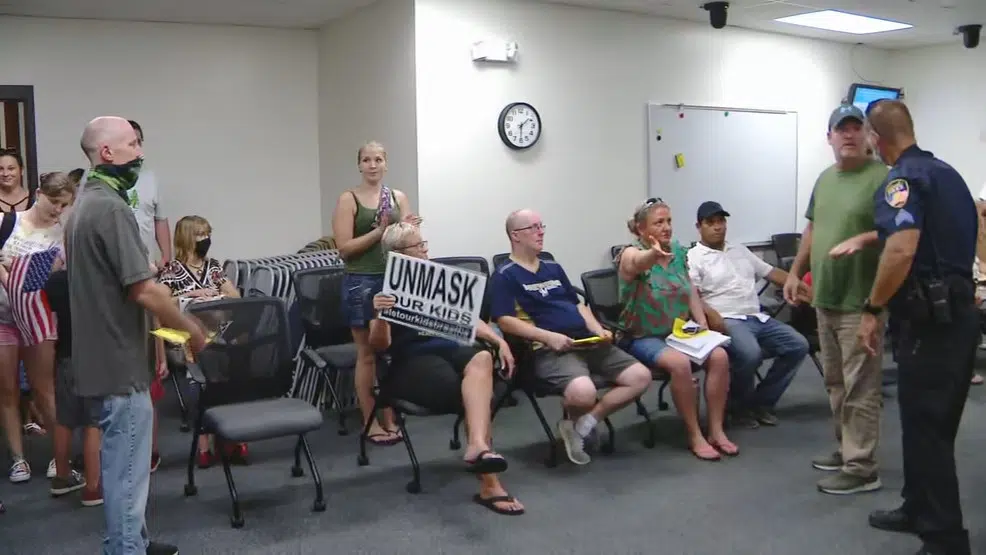OSHKOSH, WI (WTAQ-WLUK) – The Winnebago County District Attorney’s office will not file a complaint against members of the Oshkosh Area School District Board for alleged violations of the state’s Open Meetings Law.
At the school board’s Aug. 25 meeting, parents upset with the district’s mask requirement refused to wear masks at the meeting. The school board left the meeting room, returned a short time later, and said the meeting would be postponed.
The Wisconsin Transparency Project filed a complaint, alleging the discussions in the superintendent’s office constituted an improper closed session and, as such, a violation of state law.
In a two-page memo, Deputy District Attorney Eric Sparr said action by his office would not be appropriate.
“A board such as this one is not permitted to convene a meeting in closed session without giving appropriate notice in advance of the hearing and following a statutorily required procedure. In this case, there was no notice of closed session. This situation is fairly unique when compared to many other allegations of open meeting violations, in that the events seem to have been prompted by the actions of other individuals at the meeting; specifically, the people that entered the meeting unmasked. However, even when faced with an unexpected situation, the Board still has an obligation to follow open meetings laws. The Board has indicated that they were aware of this requirement, and refrained from discussion of Board issues or topics related to the scheduled meeting. Board President Bob Poeschl reports that during the half-hour time period, a discussion was held, involving him and a number of other individuals that were not board members, to determine how to address the situation at hand. Following that discussion, the Board and other individuals returned to the main meeting room.
If the Board simply left the original meeting room, and did not hold a meeting of its meeting, that would not constitute an open meetings violation. If Board members left the original meeting room and discussed, for example, how to handle the situation with the unmasked attendees or the rescheduling of the meeting, this could be construed as being non-compliant with open meetings requirements. However, even I assumed those facts, I still would not conclude that the filing of a formal action by a neutral entity would be the appropriate way to address the issue of a board’s potentially non-compliant response to other individuals conducting themselves in a non-compliant manner.”
Sparr noted the decision means the Wisconsin Transparency Project could independently file a civil action against the board members.





